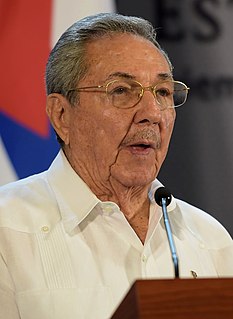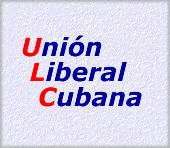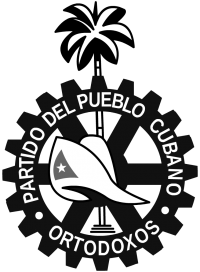
Fulgencio Batista y Zaldívar was a Cuban military officer and politician who served as the elected president of Cuba from 1940 to 1944 and as its U.S.-backed military dictator from 1952 to 1959 before being overthrown during the Cuban Revolution. Batista initially rose to power as part of the 1933 Revolt of the Sergeants, which overthrew the provisional government of Carlos Manuel de Céspedes y Quesada. He then appointed himself chief of the armed forces, with the rank of colonel and effectively controlled the five-member "pentarchy" that functioned as the collective head of state. He maintained this control through a string of puppet presidents until 1940, when he was himself elected President of Cuba on a populist platform. He then instated the 1940 Constitution of Cuba and served until 1944. After finishing his term, Batista moved to Florida, returning to Cuba to run for president in 1952. Facing certain electoral defeat, he led a military coup against President Carlos Prío Socarrás that pre-empted the election.
Cuba has had a communist political system since 1959 based on the "one state – one party" principle. Cuba is constitutionally defined as a Marxist–Leninist socialist state guided in part by the political ideas of Karl Marx, one of the fathers of historical materialism, Friedrich Engels and Vladimir Lenin. Despite being regarded as a Communist state, the ideology of José Martí is what serves as the main source of influence in Cuban politics. The present Constitution, which was passed in a 2019 referendum, also describes the role of the Communist Party of Cuba to be the "leading force of society and of the state" and as such has the capability of setting national policy. The 2019 Constitution identifies the ideals represented by Cuban independence hero José Martí and revolutionary leader Fidel Castro as the primary foundation of Cuba's political system, while also stressing the importance of the influence of the ideas of Karl Marx, Friedrich Engels, and Vladimir Lenin.

Raúl Modesto Castro Ruz is a retired Cuban politician and general who served as the first secretary of the Communist Party of Cuba, the most senior position in the one-party communist state, from 2011 to 2021, succeeding his brother, Fidel Castro as well as the 16th President of Cuba from 2006 to 2018.

The Cuban Liberal Union is a liberal party in Cuba. The party is a member of Liberal International.

The Democratic Solidarity Party was a political liberal party in Cuba. Although changes to the Cuban constitution in 1992 decriminalized the right to form political parties other than the Communist Party of Cuba, these parties are not permitted to campaign or engage in any public political activities on the island. The Democratic Solidarity party described itself as "an organization from within Cuba promoting democracy and the respect for human rights by the peaceful route." The last President of the party was Fernando Sánchez López. The party was a full member of Liberal International.

Elections in Cuba involve nomination of municipal candidates by voters in nomination assemblies, nomination of provincial and national candidates by candidacy commissions, voting by secret ballot, and recall elections. Cuba is a one-party state with the Communist Party of Cuba as the "leading force of society and of the state" under the national constitution, although elections are nominally non-partisan.

The Christian Democratic Party of Cuba is a Christian Democratic political party in Cuba. Although changes to the Cuban constitution in 1992 decriminalized the act of forming political parties other than the Communist Party, none of the parties are permitted to campaign or engage in any public political activities on the island.
The Social Democratic Co-ordination of Cuba is an illegal political party in Cuba, with a social democratic ideology.

The Party of the Cuban People – Orthodox, commonly called Orthodox Party, was a Cuban left-wing populist political party. It was founded in 1947 by Eduardo Chibás in response to government corruption and lack of reform. Its primary aims were the establishment of a distinct national identity, economic independence and the implementation of social reforms.

Cuba, officially the Republic of Cuba, is a country comprising the island of Cuba, as well as Isla de la Juventud and several minor archipelagos. Cuba is located in the northern Caribbean where the Caribbean Sea, Gulf of Mexico and Atlantic Ocean meet. It is east of the Yucatán Peninsula (Mexico), south of both the U.S. state of Florida and the Bahamas, west of Hispaniola, and north of both Jamaica and the Cayman Islands. Havana is the largest city and capital; other major cities include Santiago de Cuba and Camagüey. The official area of the Republic of Cuba is 109,884 km2 (42,426 sq mi). The main island of Cuba is the largest island in Cuba and in the Caribbean, with an area of 104,556 km2 (40,369 sq mi). Cuba is the second-most populous country in the Caribbean after Haiti, with over 11 million inhabitants.
Fabio Grobart was a Marxist-Leninist revolutionary and politician who played an important role in the 1959 Cuban Revolution that overthrew Fulgencio Batista and led to Fidel Castro's rise to power.
The Independent Republican Party was a political party in Cuba, led by Juan Gualberto Gómez. It was formed around 1900, after splits in the Republican parties in Havana, Matanzas and Las Villas. The split was caused by the opposition of the Republican parties to Gualberto Gómez's radical position against the Platt Amendment. The Independent Republican Party supported Gualberto Gómez's position on the issue.
The Cuban Democratic Socialist Current is a Cuban social democratic party that seeks to "be critical [of] our historical process hegemony within [the] civil society debate of ideas, intents and purposes over the interests and diversity of proposals, what contributes to its richness, within a single space for the nation and society at a time."

The Communist Party of Cuba is the ruling political party in the Republic of Cuba. The Cuban constitution ascribes the role of the party to be the "leading force of society and of the state". It was founded on 3 October 1965 as a successor of the United Party of the Cuban Socialist Revolution, which was in turn made up of the 26th of July Movement and Popular Socialist Party that seized power in Cuba after the 1959 Cuban Revolution.
The 8th Central Committee of the Communist Party of Cuba (CPC) was elected at the 8th CPC Congress on 19 April 2021.
The 8th Politburo of the Communist Party of Cuba (PCC) was elected in 2021 by the 1st Plenary Session of the 8th Central Committee in the immediate aftermath of the 8th Party Congress.
The 8th Secretariat of the Communist Party of Cuba (PCC) was elected in 2021 by the 1st Plenary Session of the 8th Central Committee in the immediate aftermath of the 8th Party Congress.
The 7th Secretariat of the Communist Party of Cuba (PCC) was elected in 2016 by the 1st Plenary Session of the 7th Central Committee in the immediate aftermath of the 7th Party Congress.
The 6th Secretariat of the Communist Party of Cuba (PCC) was elected in 2011 by the 1st Plenary Session of the 6th Central Committee in the immediate aftermath of the 6th Party Congress.








